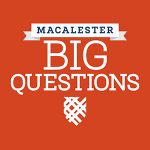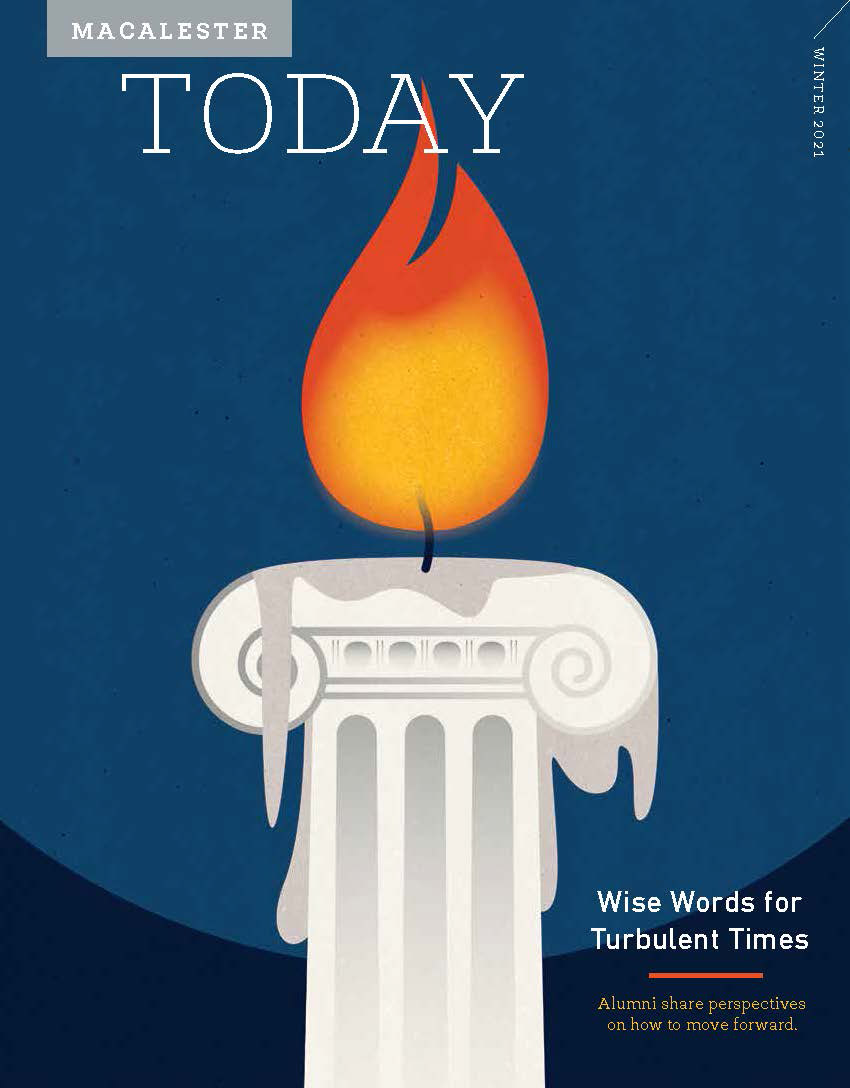Now in its third year, the college’s Big Questions series digs into the discussions happening in the Mac community. In November, President Suzanne Rivera talked with philosophy professor Sam Asarnow about how we balance our commitment to the greater good with our desire to exercise personal autonomy in a pandemic.
PRESIDENT RIVERA: What questions have you been asking yourself as a philosopher who thinks about ethical decision-making?
PROFESSOR ASARNOW: One of the first things I tell my “Introduction to Ethics” students is that, every time you make a decision, you have an opportunity to do some ethics—if you’re willing to think about that decision in light of your values and the possible effects of your behavior on other people. That’s true whether it’s a big life-shaping decision, or an everyday decision.
Often, not very much depends on whether you’re going to go to a restaurant or the grocery store.
But, in a pandemic, if I go out into the world, there’s a possibility that I might get sick or get a family member, someone else, or many people sick. When those are the risks of ordinary, everyday activities, suddenly these decisions become ethically weighty.
To be honest, those decisions are what I’ve been thinking about the most lately. Should I go to the grocery store if all I need is a bag of coffee beans? Should I go to a restaurant? Should I go to the barber to get my hair professionally cut? These decisions weigh on me heavily. I’m not sure if I’ve made all of them correctly.
In addition to the costs of morbidity and mortality imposed on us by the pandemic, we’re also facing what philosopher Jennifer Morton has called ethical costs—the costs of being in a situation where you have to make tough decisions all the time. Some are psychological: the psychological stress and anxiety of not knowing the right thing to do. Some of these costs are more strictly ethical: the costs of perhaps making some difficult choices in ways that, on reflection, we regret. Nobody’s perfect. We all make mistakes.
I’ve been trying to bring myself into a place where I can feel more compassion for myself when I realize I’ve not always done the right thing, and where I can feel more compassion for others when I realize they’ve made decisions that maybe I wouldn’t have made.
 Listen to the rest of their conversation and dozens of others by visiting macalester.edu/bigquestions—and subscribe to the Big Questions series wherever you get your podcasts.
Listen to the rest of their conversation and dozens of others by visiting macalester.edu/bigquestions—and subscribe to the Big Questions series wherever you get your podcasts.
January 25 2021
Back to top





